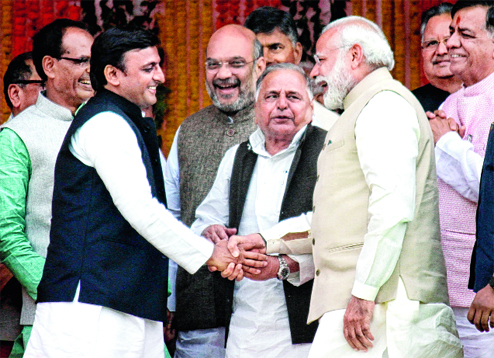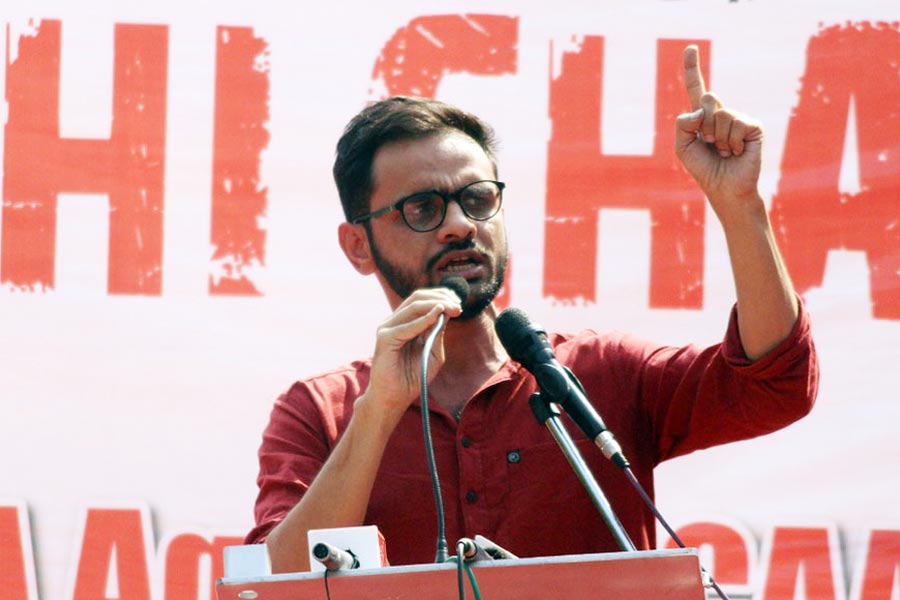Feb. 14: Michael Flynn, one of the earliest supporters of Donald Trump's insurgent presidential bid in the Republican primaries last year who was rewarded with the most sensitive strategic job in the White House, resigned as national security adviser on Monday night, six days shy of just one month in office.
Flynn's confession in his resignation letter that he "inadvertently" misled Vice-President Mike Pence "with incomplete information regarding my phone calls with the Russian ambassador" in Washington may not be the end of this story. Two of its most potent ramifications may be about to unfold.
If it is found that for nearly a month Trump sat on a justice department warning that Flynn left himself open to blackmail by Russia after his contacts with Moscow's envoy, Sergey Kislyak, the President's own standing may be at risk.
Second, the American deep state's success in getting rid of Flynn -- whose connections go right up to Vladimir Putin - is an ominous signal that the Cold War is back at the front and centre of US foreign policy, never mind Trump's noble desire to do normal business with Russia.

For India, Flynn's departure is a serious setback.
The Narendra Modi government had concluded that it had gained a strategic foothold within the Trump administration after its national security adviser, Ajit Doval, had the most exhaustive meeting yet between the NDA government and the new Republican administration.
The conventional wisdom in South Block has been that Pakistan was persuaded last month to order the house arrest of Hafiz Saeed, head of Jamaat-ud-Dawah (JuD), after Doval's one-and-a-half hour meeting with Flynn, a no-nonsense army general and top sleuth who was convinced by India's evidence of Saeed's complicity in terrorist acts in South Asia.
The events that led to Flynn's resignation are important for yet another reason. It may portend a return to the George W Bush era when it was said, not entirely without substance, that Dick Cheney, the Vice-President was the "real" President and that Bush was a mere puppet in Cheney's hands.
Trump, who became famous for his "you're fired" line in The Apprentice, his one-time TV show, did not fire Flynn despite the general's grave indiscretion of having confided in the Russian envoy that the Trump administration plans to revisit the sanctions against Moscow imposed during the final days of the Obama administration.
On the contrary, it was Vice-President Pence who was furious because he was taken for a ride by Flynn, who told Pence that he did not discuss sanctions with Kislyak. Under a 1799 US law, it is illegal for a private American citizen to negotiate foreign policy with foreign governments.
If Flynn is charged under this law, he will be the first person to be prosecuted for violation of this statute. When Flynn met Kislyak he was a private citizen and had not yet joined the Trump White House. The Vice-President went out and steadfastly defended Flynn because he trusted the general's assertion that he did not break the 1799 law. Pence lost political capital when it was subsequently revealed that Flynn did, indeed, discuss the withdrawal of sanctions against Russia once Trump assumed office.
The most intriguing element in what is undoubtedly the most dramatic development within the nearly four-week-old Trump administration is that Flynn indiscreetly phoned, texted and engaged in multiple forms of electronic communication with the Russian ambassador without any thought of the potential consequences of his actions.
As the head of America's ship-shape Defence Intelligence Agency, the Pentagon's eyes and ears, he should have known that ambassadors posted in Washington - of all people the Russian Ambassador - would be tapped by US intelligence in multiple ways. His conversations and other forms of communication with Kislyak would, therefore, become known within the administration.
To have misled the Vice President - and by implication Trump - when they already had the entire transcripts of what Flynn told the Russians was not an error of judgement, but a blunder of monumental proportions.
That the conversations between Flynn and Kislyak would have been buried in the mountains of intelligence data and gone entirely unnoticed is a reflection of how sloppy US intelligence has become.
Because the Russians did not retaliate to expulsions by Obama of Russian diplomats for allegedly hacking into the US election portals, American intelligence began digging into Kislyak's conversations for clues about Putin's inaction.
That was when they ran into Flynn's promise of immunity from sanctions to the Russians and a plea to Moscow not to retaliate and spoil Trump's moment of victory in the presidential election. The tapes and other material incriminating Flynn were then given to the White House.
For the liberal US media which is yet to reconcile to Trump being in the White House - compounded by presidential actions against the media - the Flynn episode has been sweet revenge. It was The Washington Post of Watergate fame which broke the story that Flynn was open to blackmail by Russia.
Apart from losing a strategic thinker who shares many of Trump's views, the President may miss someone who thought like him about women. At the Defence Intelligence Agency, a presentation which encouraged people to dress for their body shape and suggested that make-up made women "more attractive" came in for much criticism.










